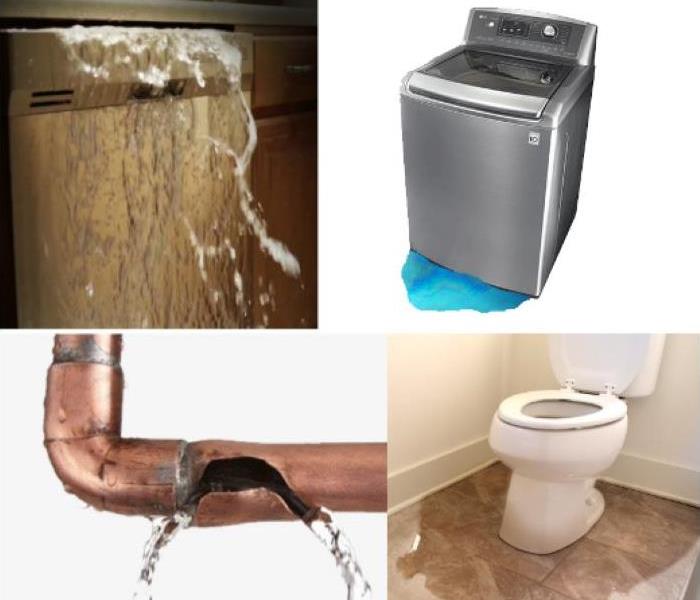5 Common Water Leaks
9/2/2020 (Permalink)
 Remember with any significant water spill. Call SERVPRO to make sure there is no hidden moisture left behind! 805-507-5507
Remember with any significant water spill. Call SERVPRO to make sure there is no hidden moisture left behind! 805-507-5507
Leaks can cause expensive repairs to your business or homes. Below are common water leaks home and business owners can run into. Check out our previous blog if you suspect water damage:
- Clogged Drain: Some clogs are just an inconvenience and can be solved with a plunger. Some clogs however lead to bursting pipes and overflowing. Obstructions in your gutters can lead to serious water damage. HVAC units can clog and overflow drain pans. Make sure you keep your gutters clear of debris and check your HVAC system periodically to make sure it is properly draining.
- Broken Seals or Loose Water Connectors: When you install an appliance in your home, contractors will seal all water connections. If you start noticing condensation or puddles around your appliances, you may have broken a seal. Seals over time wear down and the seal can break. You may notice leaking coming from water heaters, dishwashers, and washing machines. Sometimes water connectors can loosen from shifting. For example, a washing machine hose may leak due to the shaking of the unit during its spin cycle. Or as we know in California, you may have an earthquake that can shift or shake your appliance.
- Corroded Pipes: Over the years, your plumbing system will age. With that rust will eat away at your pipes. If you notice warping on your pipes or discoloration, you may want to have a plumber assess it right away. You might want to consider replacing old plumbing systems with a newer system.
- Water Pressure: Who doesn’t enjoy a nice shower massage from the high water pressure? However, sometimes that excessive or uneven water pressure can cause unnecessary strain on your pipes.
- Slab Leaks: Slab leaks occur within your concrete foundation. They happen when a copper water line corrodes and starts to slowly drip within the ground. These are hard to spot and can slowly leak for years without detection. Here are some signs to look out for that could point to slab leak: sudden spikes in your water bill, moisture under carpets, unusually low water pressure, cracks in baseboard or walls, mold problems/mildew, sound of running water when pipes aren’t in use or noticing the water meter is moving when pipes are not being used. Calling a leak detection company to find the leak is important to do early.





 24/7 Emergency Service
24/7 Emergency Service